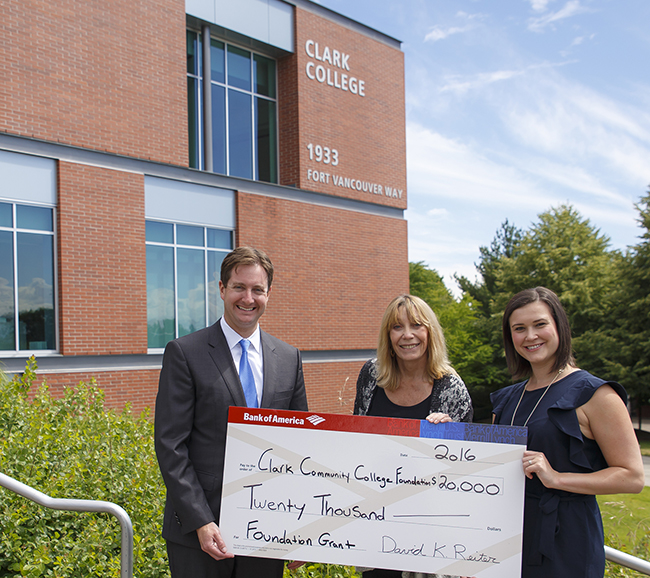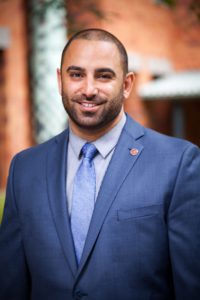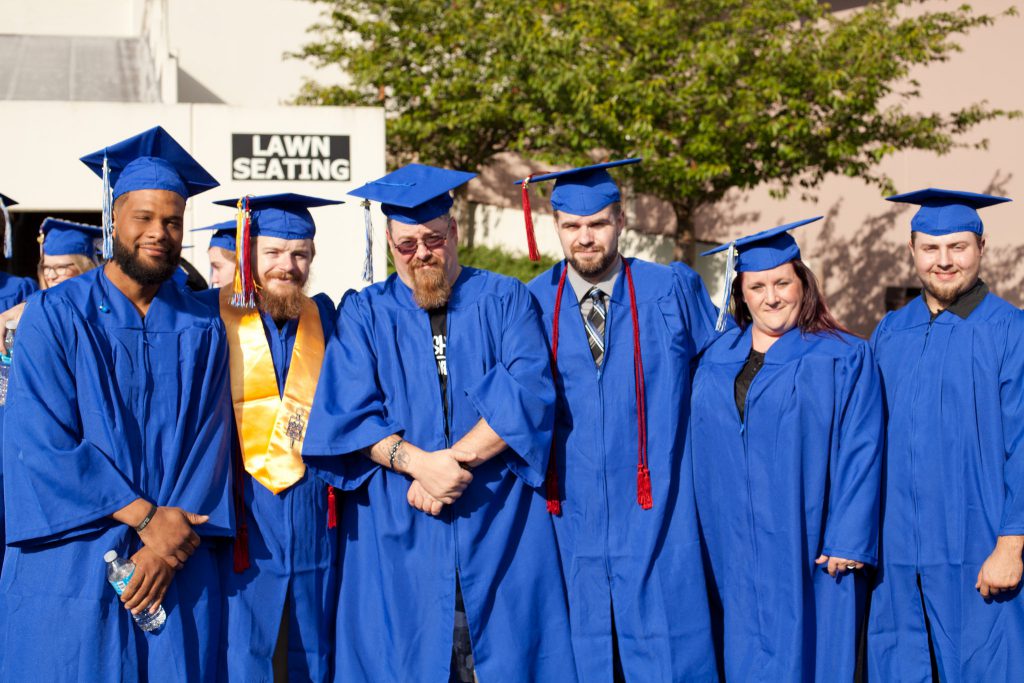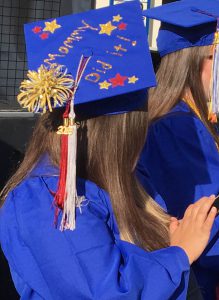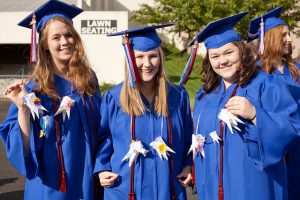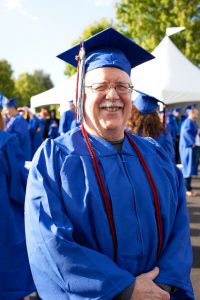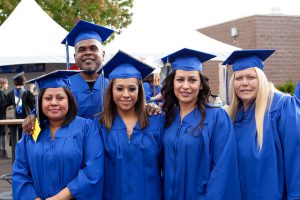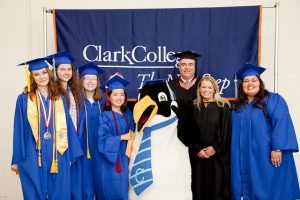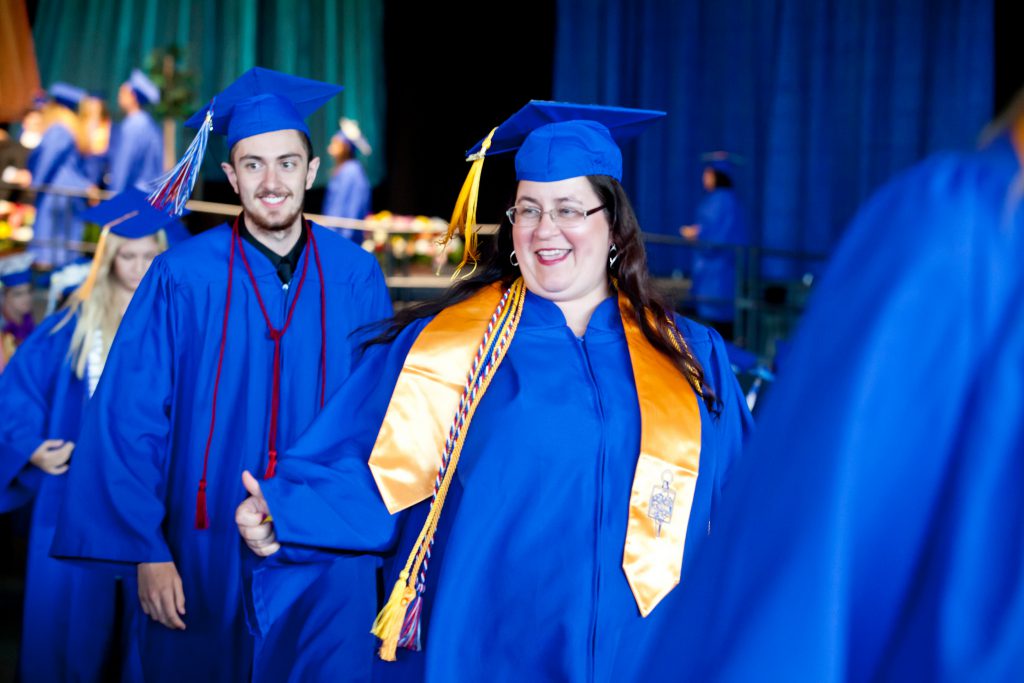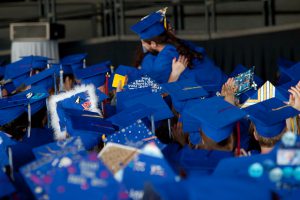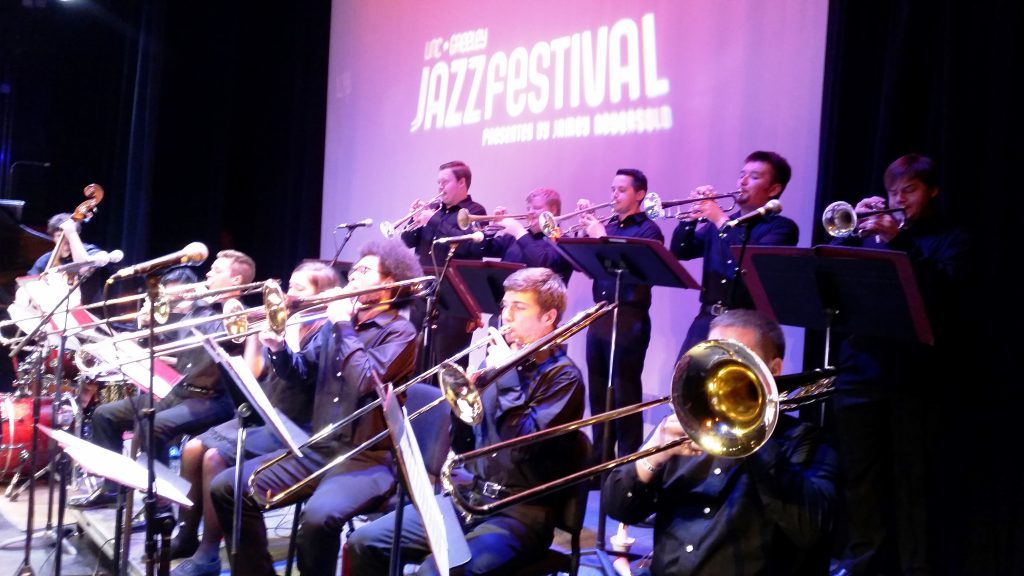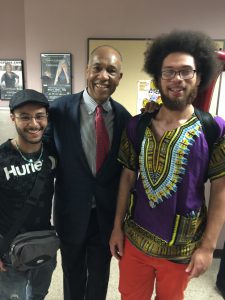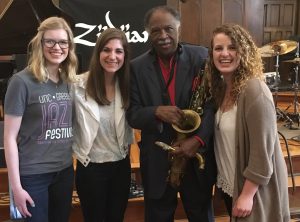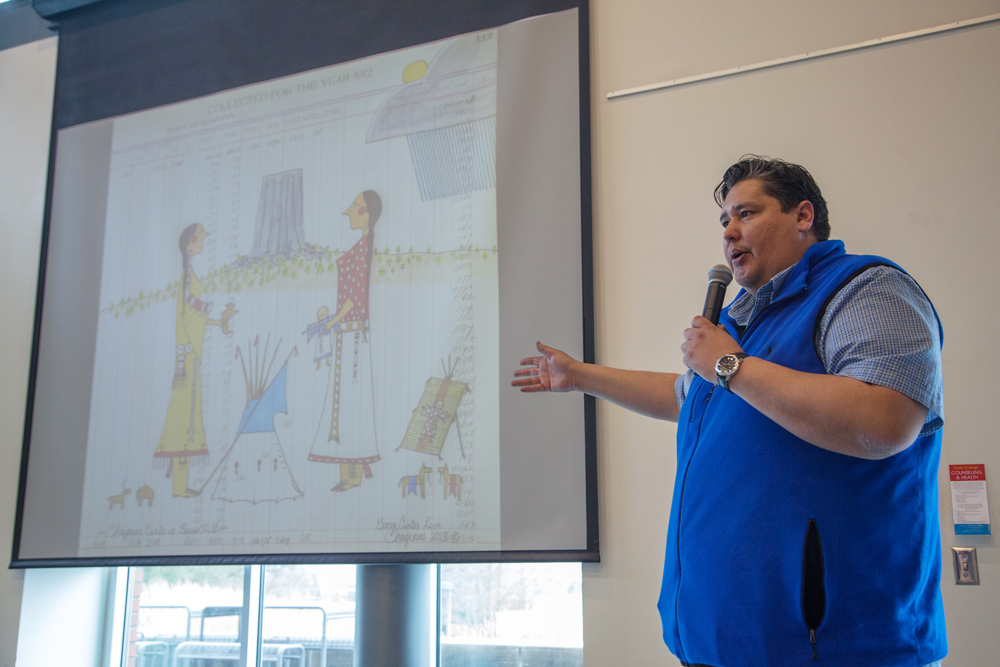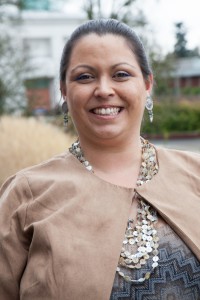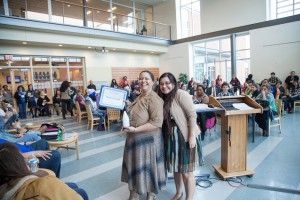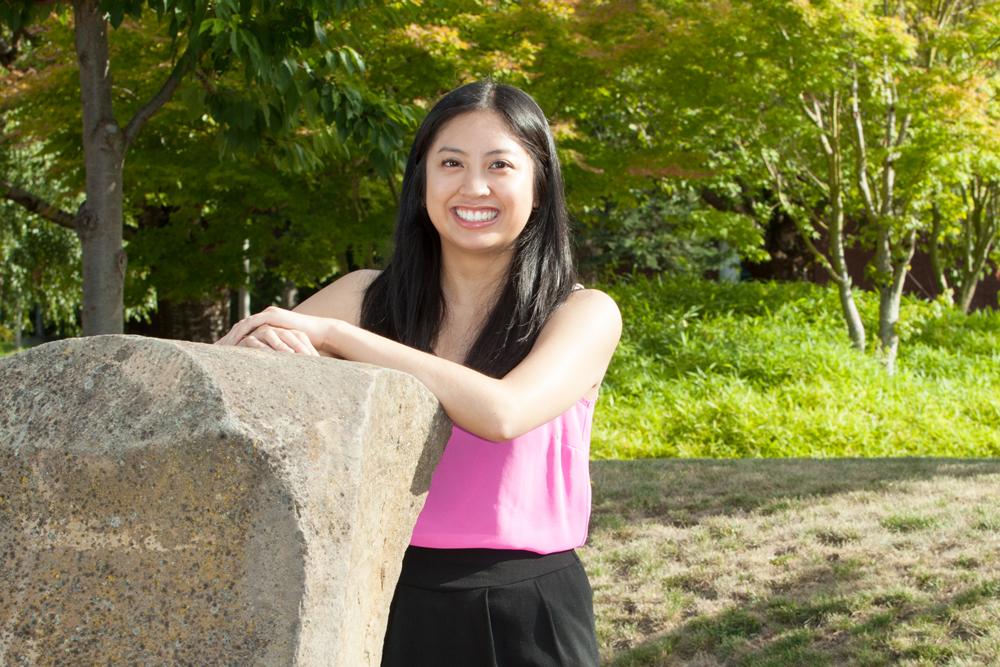
Qi Wu and Tammy Senior are Clark College’s representatives to the 2016 All-Washington Academic Team.
Two outstanding Clark College students were selected to attend the 2016 All-Washington Academic Team Recognition Ceremony, held on March 24 at South Puget Sound Community College in Olympia, Washington. Tammy Senior and Qi Wu are two of just 66 students from community and technical colleges across the state to receive this honor, which recognizes students for their academic excellence and service to the community.
At first glance, Senior and Wu don’t seem terribly similar. One is young even by the standards of Running Start, a program that allows high schoolers to take college courses; the other is coming back to college after serving four years in the military. One has spent her whole life in Vancouver; the other has lived in more countries than she can count on one hand.
But on closer inspection, certain parallels become clear between the two young women: They’re both fascinated by science and technology. They both are driven students who make time in their busy schedules to serve their communities. Both have had to challenge others’ assumptions and figuring out creative ways to get around obstacles in their educational journeys. And so far, both are succeeding impressively.
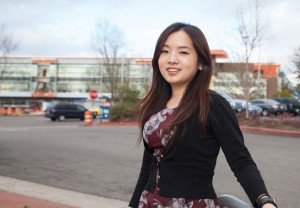
Clark student Qi Wu stands before the college’s new STEM Building, slated to open in fall 2016.
Wu’s obstacles began surfacing when she and her mother emigrated from China to the United States. Wu, then a sophomore in high school, struggled to maintain her grades while learning a new language in a new culture. She also found herself confronting gender stereotypes, as classmates and teachers assumed she would be more interested in subjects like art and the humanities instead of math and science.
“When I was growing up, I was always better in physics and chemistry,” she said. “I like numbers, I like logic. When I came to Clark and took my first engineering course, it was like, ‘Wow, this is where I belong!’”
However, soon a new hurdle appeared. Wu, whose mother had remarried and had another child, realized her family could not afford to pay for her college education. Hoping to support herself, she enlisted in the U.S. Navy in 2010 as an aviation mechanic, and took every opportunity to earn educational credits and develop new skills—despite the doubts some had of the petite young woman’s abilities.
“When I got transferred to Japan, my supervisor told me, ‘Well, you can do the desk job here, because you’re a girl,’” Wu recalled. “And I said, ‘No. I want to do the job I trained for.’”
Wu said that overall, she’s grateful for the opportunities the military provided her to travel and learn skills that will help in her electrical engineering career. She’s currently receiving scholarships from Clark, which allows her to save her military education benefits for the more-expensive, four-year institutions she hopes to attend one day to earn her master’s degree. She also works in Clark’s scholarship office herself, and spends weekends training as a Naval Reservist.
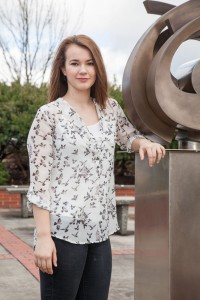
Clark student Tammy Senior says she’s been impressed by how welcoming the college was to her, even when she took her first class at age 14.
Like Wu, Senior’s challenges also began in high school, but they were of a different nature: She felt stifled. “I wasn’t being challenged enough,” she recalls. “I took a class at Clark and found it so much better.”
Senior’s family couldn’t afford to pay for a full load of college classes out of pocket, and when the 14-year-old visited Clark’s scholarship office, she discovered she was too young to qualify for financial aid or scholarship opportunities. Then, the scholarship staff offered a new possibility: Perhaps Senior could enroll in Running Start, the Washington State program that allows eligible high school juniors and seniors to take college classes tuition-free. The only problem was that Senior was still a freshman. She wound up skipping the 10th grade in order to qualify, enrolling at Clark as a full-time student at age15.
“It was definitely interesting,” Senior, now 16 and set to graduate in the spring, said with a grin. “But Clark’s pretty welcoming, and I really thrived in the community here.”
Senior has maintained a 4.0 GPA while taking classes in Clark’s challenging Honors Program, volunteering with her church, teaching private music lessons, and serving as the vice president of leadership for Clark’s chapter of Phi Theta Kappa, the international honor society for two-year colleges. She’ll be 17 when she enters a university—potentially with junior standing, depending on where she attends.
“People ask me, ‘Why don’t you enjoy your high school years?’” Senior said. “But I’m a planner. I think ahead. My mother wasn’t able to finish school because she started a family. I know I have a lot of school ahead of me, and this is a way to speed things up.”
Senior hopes to become a neurologist, a goal developed when her beloved grandmother suffered a series of debilitating strokes in 2014. Like Wu, Senior faced some skepticism about her ambitions.
“When I tell people I want to pursue a career in neurology, sometimes they look at me strangely and say, ‘Oh, why don’t you go into nursing, so you have time for a family?’” she said. “But I know I can do it. I can have a family. I can have the career of my choice. I just have to work hard. And you know, they would never tell a male student that.”
Both students say they appreciate the support they’ve found at Clark. “I like the diversity here,” says Wu, a first-generation college student. “Engineering professor Izad [Khormae] is from Iran. My physics teacher is from Russia. I think half the STEM faculty are women. And then in my classes I’ve met a few other veterans. You get so many different experiences here, different cultures.”
Wu and Senior were honored for their achievements at the All-Washington Academic Team induction ceremony on March 24, 2016, in Olympia, where Gov. Jay Inslee was the keynote speaker. The All-Washington Academic Team is a program of Phi Theta Kappa, the international honor society of two-year colleges. Team members are eligible for numerous scholarships, including transfer scholarships at most four-year universities in the state.
“It is such an honor,” said Senior, sitting with Wu during a break between classes.
“It’s nice for your hard work to be recognized,” adds Wu.
“Yes, you feel like your hard work is finally paying off,” said Senior.
Photos: Clark College/Jenny Shadley
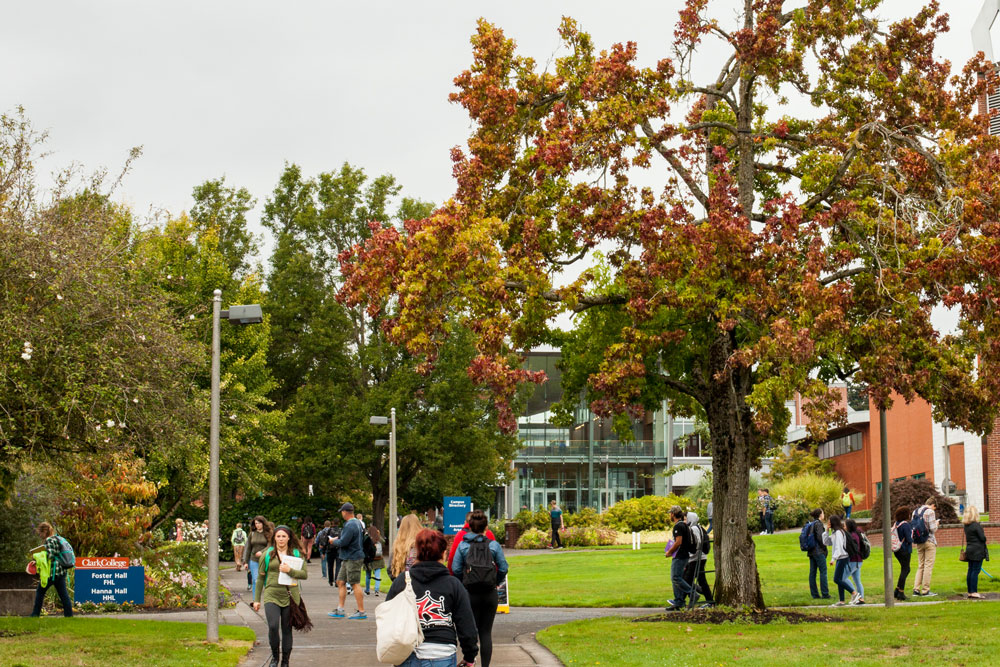 Monday, September 19 marked the start of the 2016 fall quarter at Clark College. A highlight of opening day was seeing progress on the college’s initiative to encourage more students to attend full-time (12 credits or more). Forty-eight percent of non-Running Start, and 74% of Running Start students, attended Clark full-time. These statistics are important because studies show that students who are enrolled full-time are more likely to graduate and to do so in a shorter amount of time.
Monday, September 19 marked the start of the 2016 fall quarter at Clark College. A highlight of opening day was seeing progress on the college’s initiative to encourage more students to attend full-time (12 credits or more). Forty-eight percent of non-Running Start, and 74% of Running Start students, attended Clark full-time. These statistics are important because studies show that students who are enrolled full-time are more likely to graduate and to do so in a shorter amount of time.